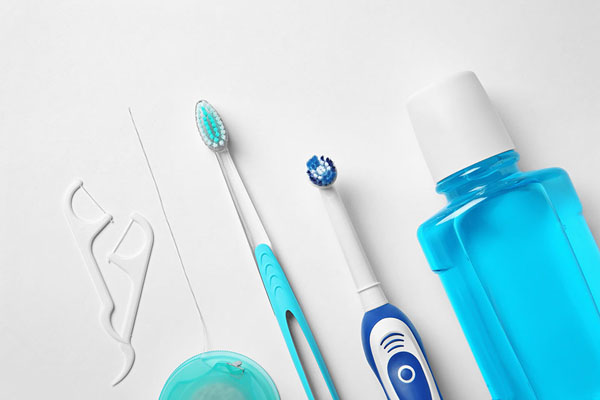Caring for Dental Crowns in Jupiter, FL
Taking Care of Your Dental Crowns for Long-Lasting Success
Dental crowns are a popular and effective solution for various dental problems, providing strength, protection, and aesthetic appeal to damaged or compromised teeth. However, to ensure the long-term success of your treatment, proper aftercare is crucial.
Explore the essential steps you need to take to ensure the longevity and optimal performance of your dental crown with our dentists at our Jupiter, FL, dental office.

Why Proper Care for Your Dental Crown Matters
Dental crowns are designed to restore and protect damaged or decayed teeth. However, their success and durability heavily depend on how well you care for them. Key considerations include:
- Healing and Recovery: Post-placement, it’s essential to allow your gums and surrounding tissues to heal properly. Following your dentist’s aftercare instructions can minimize discomfort and prevent complications.
- Oral Hygiene Maintenance: Practicing good oral hygiene habits is crucial. Brushing at least twice daily and flossing daily, especially around the gumline where the crown meets the natural tooth, helps prevent plaque buildup, tooth decay, and gum disease.
- Regular Dental Checkups: Visiting your dentist regularly enables early detection of potential issues with your crowns, ensuring timely intervention and prolonging their lifespan.
- Longevity of Crowns: With proper care, dental crowns can last many years, sometimes even decades. Adhering to recommended practices maximizes their durability and functionality.
How to Care for Your Dental Crown
Maintaining dental crowns involves practices similar to caring for natural teeth, with additional considerations:
- Practice Good Oral Hygiene: Use a soft-bristled toothbrush and fluoride toothpaste to brush your teeth at least twice daily. Floss daily to remove plaque and food particles, and consider using an antimicrobial mouthwash to reduce bacteria.
- Avoid Hard and Sticky Foods: To prevent damage to your crowns, avoid chewing on hard objects like ice cubes, popcorn kernels, and hard candy. Sticky foods can also dislodge crowns and should be minimized.
- Minimize Consumption of Staining Substances: While crowns are resistant to stains, excessive consumption of coffee, tea, red wine, and tobacco can lead to discoloration over time.
Oral Hygiene Practices
Effective oral hygiene is paramount for the health of both your crowns and natural teeth:
- Brushing Techniques: Hold your toothbrush at a 45-degree angle to the gumline and use gentle, circular motions to clean all surfaces. This approach helps prevent gum disease and ensures thorough cleaning.
- Flossing: Utilize floss threaders or water flossers to clean around crowns effectively, removing debris that can lead to decay.
- Using Antimicrobial Mouthwash: Rinsing with an antimicrobial mouthwash can reduce harmful bacteria, supporting overall oral health.
Lifestyle Considerations
Certain habits can impact the integrity of your dental crowns:
- Avoid Teeth Grinding and Clenching: Bruxism can exert undue pressure on crowns, leading to damage. If you grind your teeth, consult your dentist about a night guard to protect your dental work.
- Protect Dental Crowns During Physical Activities: If you engage in contact sports, wearing a mouthguard can safeguard your crowns from trauma.
- Minimize Exposure to Acidic and Sugary Foods: Acidic and sugary substances can erode tooth enamel and compromise the area around your crowns. Limiting the intake of such foods helps maintain oral health.

Caring for a Temporary Dental Crown
While awaiting your permanent crown, it’s important to:
- Avoid Sticky and Hard Foods: These can dislodge or damage the temporary crown.
- Chew on the Opposite Side: This precaution helps protect the temporary crown during eating.
- Maintain Good Oral Hygiene: Continue brushing and gentle flossing to keep the area clean.

Frequently Asked Questions
Absolutely! Brush and floss your dental crowns just like you would with natural teeth. It’s essential to clean the area where the crown meets the gumline to prevent plaque buildup and gum disease.
If you notice that your dental crown feels loose or dislodged, contact your dentist immediately to assess and address the issue, which may involve re-cementing or replacing the crown.
While the crown itself cannot decay, the underlying natural tooth is still susceptible to cavities. Proper oral hygiene is crucial to protect these areas.
Follow These Tips for Effective Crown Maintenance
By diligently following these guidelines and maintaining regular dental visits, you can ensure the longevity and success of your dental crowns, preserving both function and aesthetics for years to come.
For personalized advice and care, contact our Jupiter dental office at (561) 744-0677. We proudly serve patients in Jupiter, Hobe Sound, Limestone Creek, Tequesta, and surrounding communities.
